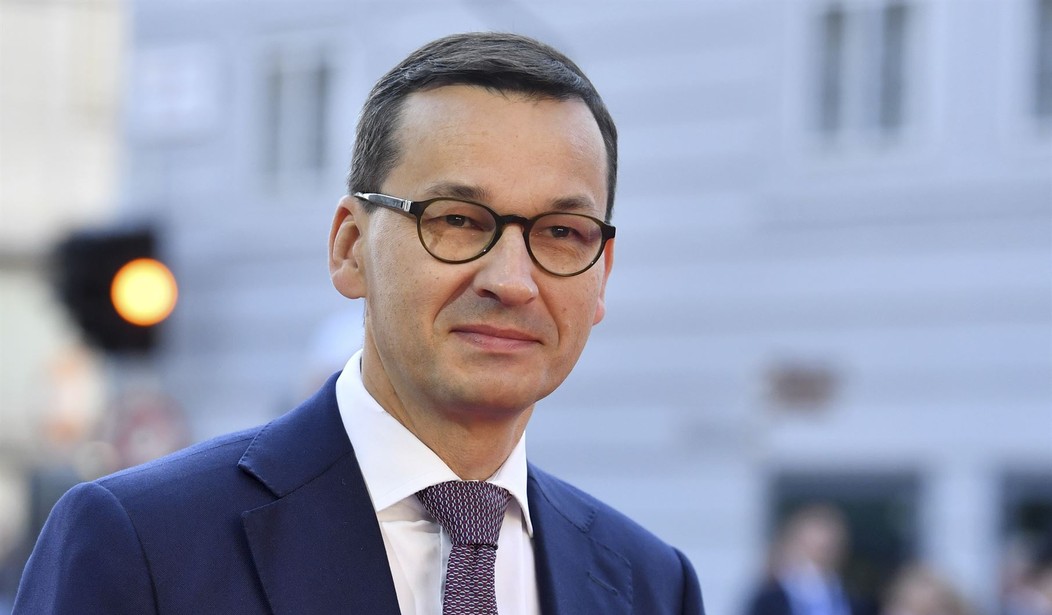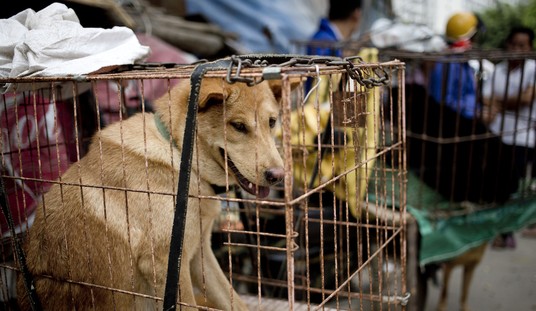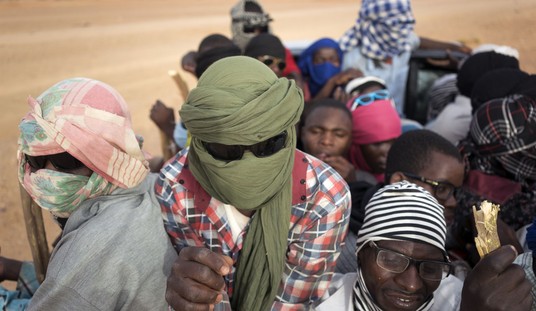Poland Ambassador Marek Magierowski sat down with CNN’s Jake Tapper on this Sunday’s edition of “State of the Union” to continue to push his country’s proposal for NATO to consider becoming involved in peacekeeping in Ukraine, at this week’s alliance summit. Tapper began the interview with the following opening question,
“Your prime minister says he intends to propose a peacekeeping mission, a NATO peacekeeping mission, in Ukraine at this week’s summit. What would that look like? What would be part — who would be part of that force? What exactly would they be doing in Ukraine?”
The measured response,
“It is, understandably, preliminary concept which has been put on the table, a proposal which has to be considered by our NATO allies.
And, of course, in terms of international law, it will be complicated, as you probably imagine. But I believe we have to explore every option and every avenue to stop this aggression and this unprovoked war as quickly as possible, of course, without engaging Russia in direct military confrontation, because this is not the intent.
But I think we should talk about all possibilities in order also to send a very clear signal to the Kremlin that NATO is determined to not only help the Ukrainians to defeat the Russian army, the aggressor on their soil, but also to defend our territorial integrity, our sovereignty and our freedoms.”
The proposal was made by Poland’s Prime Minister Mateusz Morawiecki, following a visit he made to Ukraine along with the Prime Ministers of the Czech Republic and Slovenia to meet with Ukrainian President Volodymyr Zelenskyy. Commenting on the visit, Magierowski said:
“It was a very symbolic journey, obviously. He wanted to send a message of solidarity and sympathy with the Ukrainian people and especially with President Zelenskyy himself. And, also, he stressed very clearly that — talking about Ukraine’s future, that the European Union should grant the so-called fast-track option to Ukraine, in terms of Ukraine’s joining the European Union, Ukraine’s accession to European institutions, which has always been one of the most important and crucial aspirations of the Ukrainian people.”
See the CNN video clip here, https://www.cnn.com/videos/politics/2022/03/20/magierowski-on-nato-peacekeeping.cnn
As Tapper continued to press Magierowski about the peacekeeping proposal, the ambassador reiterated that this is a very “preliminary” concept. The Ambassador’s clarifications included,
“… we are not talking about a possible escalation and possible engagement of NATO troops in Ukraine. I fully agree with most Polish and Western politicians who say that it would be too escalatory.
No. No, I’m not talking about Polish troops in Ukraine.
We can’t take any decisions unilaterally even as a NATO member state.”
Where is all this going?
The US has expressed doubt about the Polish initiative. This piece by First News, US skeptical about Poland’s proposal for Nato ‘peace mission’, quotes a State Department spokesperson worrying that any entry of US or NATO forces into Ukraine, even purely as peacekeepers, would be escalatory.
However, I see the Poles beginning to look toward the aftermath of the war. Despite the media rhetoric and propaganda war by both sides, the on the ground reality remains that Russia is slowly but surely grinding down the Ukrainian military. The pattern of their territory-taking concentrates on taking key areas in eastern Ukraine, while so far avoiding the wheat fields of Ukraine’s breadbasket agricultural center. In an ode back to centuries’ old practices in siege warfare of pausing hostilities to till the fields, the Russians probably do not want to disrupt the spring planting season. They have also, so far, mostly harassed western Ukraine, sending messages that they do not like the West continuing to supply the Zelenskyy government’s ability to prolong the conflict. The internet aside, this is the most common sober assessment among analysts observing the conflict.
This means that the conflict will, as the Chinese put it, eventually take the bell off the tiger and result in some sort of settlement that turns Ukraine into a neutral county not aligned with either NATO or Russia for the foreseeable future. Economically and governmentally, Ukraine will become a country split into a European Union-leaning part and a Russian Federation-leaning part. There will be a line of animus between these two zones, and there will have to be some sort of third party to keep the two sides from turning the frontier between two spheres of influence into a permanently dangerous, no-man’s land. It’s the 21st century version of a new Berlin Wall. Every war hawk on the planet, Western and Russian, will be happy clams with this new miniature golf version of the Cold War.
On the world scene, hard feelings will mean the isolation of economies between the US/EU and Russia will persist, and sanctions will turn into new economic models of how the global economy works. There is a line of analysis that believes that US-led sanctions actually makes it easier for Russian President Vladimir Putin to nationalize Russian industries to form a more tightly controlled, centrally planned economy, though a much poorer one for some time to come. China initially wins this game by trading with both economic blocks. Over the longer term, things will soften, and the US/EU bloc will re-establish economic ties with the Russian bloc again. By then, hopefully most of the lightning rod personalities that are driving the hard feelings of war in the year 2022 will be mere memories.
Ambassador Magierowski put it this way,
“I believe that the upcoming NATO summit in Brussels next week will be a great opportunity to talk about all these possibilities and options and proposals which are now on the table how to deter Russia, also in a longer term.”
What the Poles will be bringing to NATO is the question of how to start thinking about the dividing line between global spheres of influence after this phase of the Ukraine war ends.













Join the conversation as a VIP Member